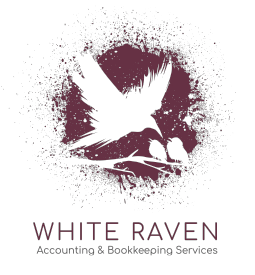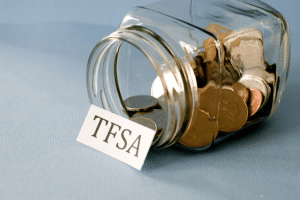Introduction
Tax planning is an essential part of managing your finances effectively in Canada. It goes beyond preparing your annual tax return—it’s about creating a strategy to minimize your tax obligations, maximize your savings, and align your financial goals with available tax benefits. Whether you’re an individual, a small business owner, or a corporate entity, understanding the nuances of Canada’s tax system can help you keep more of what you earn.
In this guide, we’ll explore strategies tailored to various financial situations, including personal tax optimization, small business tax planning, cross-border considerations, investment tax efficiency, and key deadlines to help you stay compliant. With the right knowledge, you can navigate Canada’s tax system confidently and save money in the process.
Why Tax Planning Is Crucial in Canada
Tax planning is a proactive process that allows individuals and businesses to structure their finances in a way that minimizes tax liabilities while complying with Canada’s tax laws. It’s not just about saving money; it’s about optimizing your financial resources to ensure long-term stability and growth.
The Role of Tax Planning in Financial Health
Effective tax planning ensures that you’re not paying more taxes than necessary. By understanding the tax laws and how they apply to your unique situation, you can make informed decisions about income, investments, and expenses. For individuals, this could mean taking advantage of deductions and credits to reduce taxable income. For businesses, it involves identifying deductible expenses, leveraging tax incentives, and planning cash flows to meet tax obligations without unnecessary strain.
Tax planning also provides peace of mind. Knowing that your finances are structured efficiently and in compliance with Canadian tax laws helps you avoid the stress of last-minute filings, errors, or potential penalties. It’s an investment in financial security that pays off year after year.
The Benefits of Proactive Tax Planning
One of the key benefits of tax planning is the ability to align your finances with your long-term goals. Whether you’re saving for retirement, expanding your business, or planning an international move, tax planning helps you allocate resources strategically. For instance:
- Individuals can maximize their RRSP contributions to save for retirement while reducing taxable income.
- Businesses can leverage small business deductions and tax credits to reinvest savings into growth.
- Investors can structure their portfolios to minimize capital gains taxes and optimize dividend income.
Proactive tax planning also helps you adapt to changes in income, tax laws, or financial circumstances. Regularly reviewing and adjusting your strategy ensures you’re taking advantage of new opportunities and avoiding costly mistakes.
Understanding Canada’s Tax Framework
Canada’s tax system is complex but designed to be equitable. It operates at two levels: federal and provincial. Federal taxes are standardized across the country, while provincial taxes vary depending on where you live and work. Understanding this framework is key to effective tax planning.
Key features of the Canadian tax system include:
- Progressive Tax Rates: Income is taxed at higher rates as it increases. This makes it essential to consider tax-sheltering strategies like RRSPs or TFSAs to keep more income in lower tax brackets.
- Deductions and Credits: These are opportunities to reduce taxable income or offset taxes owed. Common examples include medical expense deductions, tuition credits, and the small business deduction.
- GST/HST Requirements: Businesses must navigate the Goods and Services Tax/Harmonized Sales Tax rules, ensuring they collect, report, and remit accurately.
Compliance with the Canada Revenue Agency (CRA) is another critical aspect of tax planning. Filing accurately and on time helps avoid interest charges, penalties, or audits. Tax planning ensures you’re prepared for these obligations well in advance, so there are no surprises come tax season.
Personal Tax Optimization: Key Strategies for Individuals
Optimizing personal taxes is one of the most effective ways to reduce your financial burden and maximize savings in Canada. By taking full advantage of available tax credits, deductions, and filing tools, individuals can ensure they’re making the most of the country’s tax framework.
Making the Most of Tax Credits
Tax credits are an essential component of reducing your tax bill in Canada. They directly lower the amount of tax owed and are available at both federal and provincial levels. For instance, the Tuition Tax Credit helps students or their families reduce taxes owed on post-secondary tuition fees. Similarly, the Canada Child Benefit (CCB) provides non-taxable financial support for families with children under 18.
To maximize tax credit claims:
- Keep Accurate Records: Maintain receipts and documentation to support your claims.
- Combine Federal and Provincial Benefits: Explore provincial programs like energy rebates or property tax credits that complement federal credits.
- Plan Expenses Strategically: Group eligible expenses, such as medical costs, to surpass claim thresholds in a single tax year.
Tax Deductions to Lower Taxable Income
Unlike credits, deductions reduce your taxable income, which can significantly decrease your overall tax rate. Contributions to a Registered Retirement Savings Plan (RRSP) are among the most powerful deductions, as they not only reduce your taxable income but also support long-term retirement goals.
Medical expenses, professional fees, and union dues are also deductible, making it important to track these expenses year-round. By grouping expenses strategically, such as timing medical treatments within the same tax year, you can ensure you’re maximizing their impact on your taxes.
Filing Your Personal Taxes Correctly
Proper filing ensures you can claim all your eligible tax benefits while avoiding penalties. Begin by gathering essential documents like T4s, RRSP receipts, and proof of deductions. Filing tools like TurboTax can simplify the process for individuals, while professional accountants are invaluable for those with more complex returns.
Always file by the CRA deadline (April 30 for most individuals) to avoid penalties. Keeping organized records throughout the year can also make the process faster and stress-free.
By understanding and leveraging credits, deductions, and efficient filing methods, Canadians can effectively reduce their tax burden while staying compliant with CRA regulations.
Small Business Tax Guide: Strategies for Entrepreneurs
For Canadian entrepreneurs, understanding and optimizing your tax obligations is essential to the financial health and growth of your business. From corporate deductions to GST/HST requirements, small business owners can take advantage of several strategies to reduce costs, stay compliant, and make the most of Canada’s tax framework.
Corporate Tax Deductions
Corporate tax deductions are a key tool for small businesses to lower their taxable income. By identifying and claiming eligible expenses, you can significantly reduce the amount of tax your business owes.
Essential Deductions for Small Businesses
One of the most common tax deductions is the home office deduction, which applies to business owners who use a portion of their home exclusively for work. You can deduct a percentage of household expenses like utilities, property taxes, and internet, based on the size of the workspace relative to your home.
Other critical deductions include:
- Employee Salaries and Benefits: Costs for staff wages, bonuses, and certain benefits are fully deductible.
- Vehicle Expenses: If you use a car for business purposes, a portion of fuel, maintenance, and insurance expenses can be deducted.
- Startup Costs: New businesses can deduct initial costs such as marketing, equipment, and professional fees incurred before generating revenue.
To maximize deductions, maintain detailed records and receipts for all eligible expenses. Consulting with a tax professional can also help uncover lesser-known opportunities tailored to your industry.
Understanding GST/HST Requirements
The Goods and Services Tax (GST) or Harmonized Sales Tax (HST) applies to most goods and services sold in Canada. As a business owner, understanding your obligations related to GST/HST is critical to avoiding penalties and ensuring smooth operations.
What is GST/HST, and Who Needs to Register?
If your business earns more than $30,000 in revenue over four consecutive quarters, you are required to register for a GST/HST account. This registration allows you to charge, collect, and remit taxes on behalf of the Canada Revenue Agency (CRA).
Filing Tips to Stay Compliant
- Track Input Tax Credits (ITCs): These credits allow you to recover GST/HST paid on eligible business expenses.
- File Regularly: Depending on your revenue, you may need to file monthly, quarterly, or annually. Ensure you meet CRA deadlines to avoid interest and penalties.
- Use Accounting Software: Tools like QuickBooks or Wave can automate GST/HST calculations and streamline reporting.
Filing Taxes as a Small Business
Accurate tax filing is essential for avoiding audits and penalties. Small business owners must ensure that income, expenses, and deductions are correctly documented and reported.
Importance of Maintaining Accurate Records
Good record-keeping is the backbone of effective tax management. Organize receipts, invoices, and financial statements systematically throughout the year. This not only simplifies the tax filing process but also ensures you can substantiate your claims if audited.
Tools for Tracking Expenses and Preparing Returns
Modern accounting tools like QuickBooks can make expense tracking seamless, while tax software such as TurboTax Business simplifies the filing process. For more complex filings, hiring an accountant experienced in small business taxes can be a worthwhile investment.
By leveraging corporate deductions, staying on top of GST/HST requirements, and maintaining accurate records, small business owners can save money and focus on growing their enterprises.
Cross-Border and Expat Tax Strategies
For Canadians earning income abroad or moving internationally, navigating cross-border taxes and expat obligations can be complex. Proper planning is essential to minimize tax liabilities and avoid penalties while taking full advantage of Canada’s tax treaties and credits.
Navigating Foreign Tax Credits
The Foreign Tax Credit (FTC) system in Canada is designed to prevent double taxation for residents earning income in other countries. This credit allows you to offset taxes paid to a foreign jurisdiction against Canadian taxes owed on the same income.
For example, if you’re working in a country with a higher tax rate than Canada, you may claim the amount paid abroad as a credit, reducing your Canadian tax liability to zero for that income. However, navigating these claims requires accurate records, such as foreign tax assessments and proof of payment, to ensure eligibility.
Proactive tax planning with an accountant experienced in international taxation is key. They can help determine whether it’s more beneficial to claim foreign tax credits or deductions, depending on your situation.
Departure Tax for Expats
When you leave Canada and establish tax residency in another country, you may be subject to the departure tax, which applies to certain assets. This tax assumes you have disposed of all your assets at fair market value, triggering capital gains tax on items like stocks, bonds, or property.
Tips to Minimize Departure Tax Impact
- Plan Asset Dispositions: Sell or transfer taxable assets before changing residency to manage capital gains efficiently.
- Use Exemptions: Certain assets, like RRSPs and Canadian real estate, are exempt from the departure tax.
- Leverage Treaty Benefits: Many countries have tax treaties with Canada that can reduce or eliminate departure tax liabilities.
Proper preparation and consultation with a tax advisor can significantly reduce the financial burden of leaving Canada.
Tax Compliance for Cross-Border Professionals
For Canadians working across borders, maintaining compliance with both domestic and foreign tax authorities is critical. Challenges include understanding dual residency rules, managing foreign bank account reporting requirements, and meeting filing obligations in multiple jurisdictions.
Solutions include setting up automated systems to track income and tax withholding across borders and working with specialists who understand the tax systems of both countries. Staying informed and organized is the best defense against costly errors.
Tax-Efficient Investing: Maximize Returns, Minimize Taxes
Tax-efficient investing helps Canadians retain more of their earnings while building long-term wealth. Understanding the tax implications of your investments is crucial to making informed decisions and optimizing returns.
Understanding Capital Gains Taxes
In Canada, capital gains are taxed at 50% of the total gain. This means that if you sell an investment for a profit, only half of the gain is added to your taxable income.
Strategies to Offset Capital Gains
- Harvesting Capital Losses: Selling underperforming investments can offset taxable gains, reducing your overall tax burden.
- Timing Your Sales: Postponing asset sales to a lower-income year can minimize the tax impact.
Planning the timing of sales and managing your portfolio strategically ensures you don’t pay more tax than necessary on your gains.
Dividend Income Taxation
Dividends are an attractive income source for many investors, but they are taxed differently than regular income. In Canada, dividends are categorized as either eligible or non-eligible, with eligible dividends offering a higher tax credit.
- Eligible Dividends: Typically paid by larger, public corporations, eligible dividends receive preferential tax treatment, reducing the effective tax rate.
- Non-Eligible Dividends: Paid by small businesses, these are taxed at a slightly higher rate but still benefit from some tax credits.
Choosing dividend-paying stocks that align with your income level and tax planning goals can help maximize after-tax returns.
Tax Sheltered Investment Accounts
Canada offers several tax-sheltered accounts to help investors grow wealth efficiently. Understanding the differences between these accounts is crucial:
- RRSP (Registered Retirement Savings Plan): Contributions are tax-deductible, and growth is tax-deferred until withdrawal, making it ideal for retirement savings.
- TFSA (Tax-Free Savings Account): Earnings and withdrawals are completely tax-free, providing flexibility for short- or long-term goals.
- RESP (Registered Education Savings Plan): Contributions grow tax-free, and withdrawals are taxed in the student’s lower income bracket, making it perfect for education savings.
Choosing the right account depends on your financial objectives and income level. For example, those focused on retirement might prioritize RRSPs, while younger investors may find TFSAs more beneficial for flexibility.
Tax Deadlines and Compliance in Canada
Staying aware of tax deadlines and compliance requirements is crucial to avoiding penalties and interest charges. Whether you’re an individual or a business, understanding your obligations with the Canada Revenue Agency (CRA) ensures smooth financial management throughout the year.
Key Tax Deadlines to Remember
For 2025, important tax deadlines include:
- Personal Tax Filing Deadline: April 30, 2025, for most individuals.
- Self-Employed Tax Filing Deadline: June 17, 2025, though any taxes owed must still be paid by April 30.
- Corporate Tax Filing Deadline: Six months after the fiscal year-end.
Staying Compliant with CRA Regulations
Compliance with CRA rules is critical for avoiding audits, penalties, or legal issues. The CRA uses audits to ensure taxpayers accurately report income and claim deductions or credits within the law.
Tips to Avoid Red Flags:
- Be Accurate and Transparent: Report all income sources and avoid inflating deductions.
- Organize Documentation: Keep receipts, invoices, and proof of claims for at least six years.
- Respond to CRA Requests Promptly: Address inquiries or provide requested documents on time to avoid escalation.
Penalties for non-compliance can range from fines to criminal charges in cases of deliberate tax evasion. Staying informed and meticulous in your reporting is the best way to avoid issues.
Tools for Tracking Tax Deadlines
Staying organized is the foundation of compliance. Leveraging technology can make this process much easier.
Recommended Apps and Resources:
- CRA My Account: A secure online portal to track deadlines, file taxes, and manage payments.
- QuickBooks or Xero: Accounting tools with built-in tax tracking and reminders for businesses.
- Calendar Apps: Google Calendar or Microsoft Outlook can be customized with alerts for tax deadlines.
Regularly reviewing your financial records and setting reminders well in advance of key dates ensures that you remain compliant and stress-free during tax season.
By understanding deadlines, staying compliant with CRA rules, and utilizing tools to stay organized, individuals and businesses can avoid costly mistakes and focus on achieving their financial goals
Working with a Tax Professional: Is It Worth It?
Navigating Canada’s complex tax system can be daunting, and many individuals and businesses wonder whether hiring a tax professional is worth the investment. Here’s a closer look at the benefits and considerations:
Benefits of Hiring a Tax Planner or Accountant
- Expertise and Accuracy: Tax professionals are trained to navigate the nuances of Canadian tax laws, ensuring accurate filings and maximizing deductions and credits.
- Time Savings: Delegating tax preparation to an expert frees up valuable time, especially for busy professionals and business owners.
- Audit Support: In case of a CRA audit, a tax professional can guide you through the process and represent your interests.
- Strategic Advice: Professionals offer personalized strategies for tax savings, such as optimizing RRSP contributions or managing cross-border tax obligations.
Cost vs. Savings Analysis
While tax professionals charge a fee, their ability to uncover deductions and credits often offsets the cost. For individuals with straightforward returns, the cost may range from $100 to $300, while complex filings for businesses or cross-border earners can cost more. The potential tax savings, however, often outweigh these fees, especially for those with higher incomes or intricate financial situations.
Tips for Finding the Right Tax Professional in Canada
- Check Credentials: Look for Certified Professional Accountants (CPAs) or tax advisors with relevant experience.
- Seek Recommendations: Ask for referrals from friends or colleagues who have had positive experiences.
- Review Services and Fees: Ensure the professional’s expertise matches your needs, and clarify pricing upfront.
- Evaluate Communication: Choose someone responsive and willing to explain complex concepts in simple terms.
For many Canadians, the peace of mind and potential tax savings make hiring a tax professional a worthwhile investment. Whether you’re managing a growing business or navigating personal tax complexities, professional guidance can help you stay compliant and financially efficient.
Common Tax Mistakes to Avoid
Even with the best intentions, mistakes during tax preparation can lead to missed savings, penalties, or even audits. Both individuals and businesses need to be mindful of common pitfalls to ensure their filings are accurate and compliant with CRA regulations.
Frequent Errors Made by Individuals and Businesses
- Failing to Report All Income: Forgetting income from part-time work, side gigs, or investments is a common mistake. The CRA receives reports from employers and financial institutions, so discrepancies can trigger audits.
- Missing Deadlines: Late filings can result in penalties and interest charges, eroding any potential savings. This is especially problematic for businesses with multiple tax obligations, such as GST/HST returns.
- Overlooking Deductions and Credits: Many taxpayers fail to claim eligible expenses like medical costs, childcare, or RRSP contributions. For businesses, ignoring deductions for home offices or professional fees can mean paying more tax than necessary.
- Improper Record-Keeping: Inadequate documentation for deductions and credits can lead to denied claims during an audit. Businesses often struggle with tracking expenses accurately, particularly for cash transactions.
- Misclassifying Expenses: For businesses, incorrectly categorizing personal and business expenses can raise red flags with the CRA and may lead to penalties.
How to Prevent Mistakes and Ensure Accurate Filings
Preventing tax mistakes starts with staying organized throughout the year. Maintain detailed records of your income, expenses, and receipts to avoid scrambling at the last minute. Using CRA-certified tax software can help ensure accuracy, while consulting a tax professional offers personalized advice and can uncover opportunities you might overlook. Double-check your calculations, deductions, and credits before filing to catch errors and ensure your claims are complete.
For business owners, keeping personal and business finances separate simplifies record-keeping and minimizes errors. Knowing your deadlines and setting reminders for filing and payment dates can prevent costly penalties. By taking these proactive steps, you can reduce errors, avoid red flags, and make the most of available tax-saving opportunities.
Conclusion
Tax planning is essential for achieving financial stability and keeping more of your hard-earned money. Whether you’re an individual seeking to maximize personal credits, a small business owner navigating deductions, or an investor optimizing returns, the right strategies can make a significant difference.
By staying organized, filing accurately, and avoiding common mistakes, you can navigate Canada’s tax system confidently and effectively. Professional guidance can also ensure that you’re fully leveraging all available opportunities.
If you’re ready to take control of your taxes and secure your financial future, contact White Raven today to get started on your personalized tax planning strategy.





